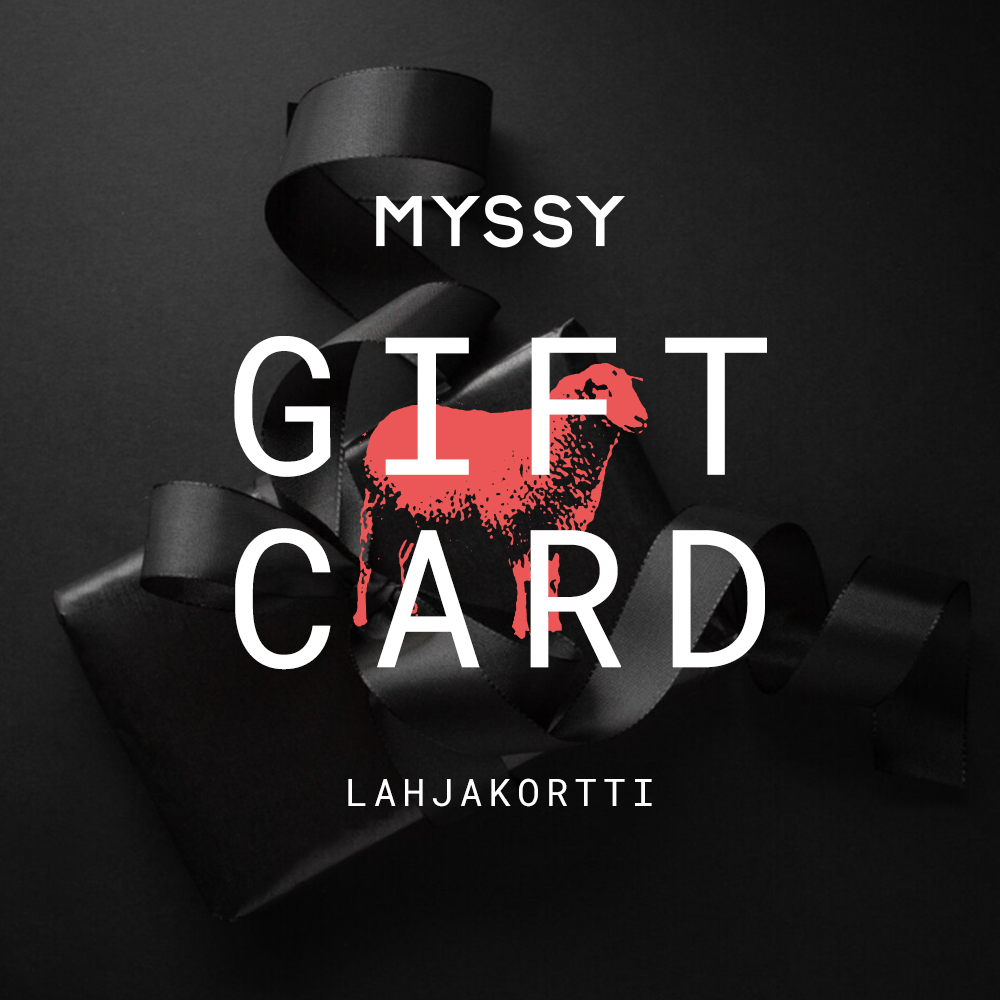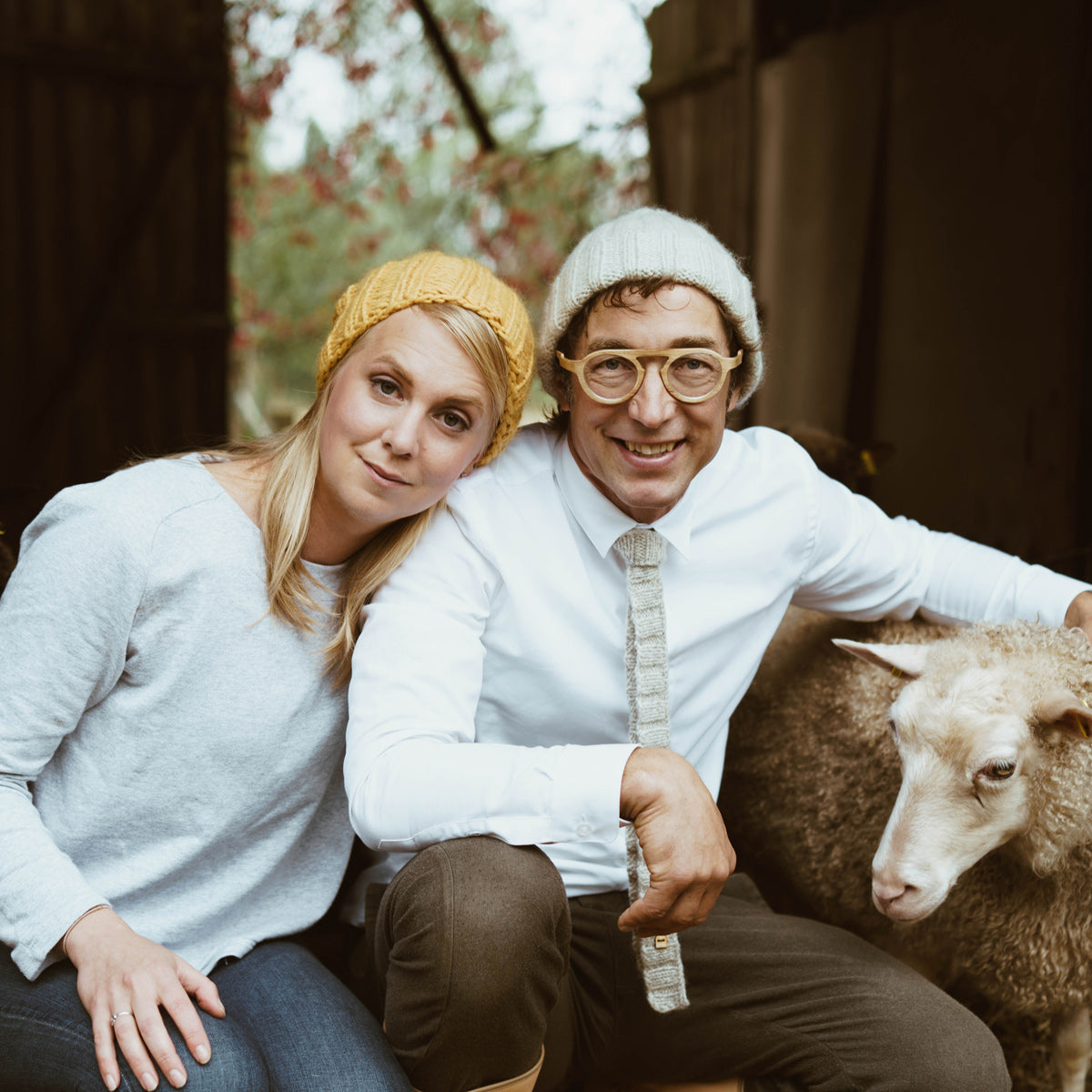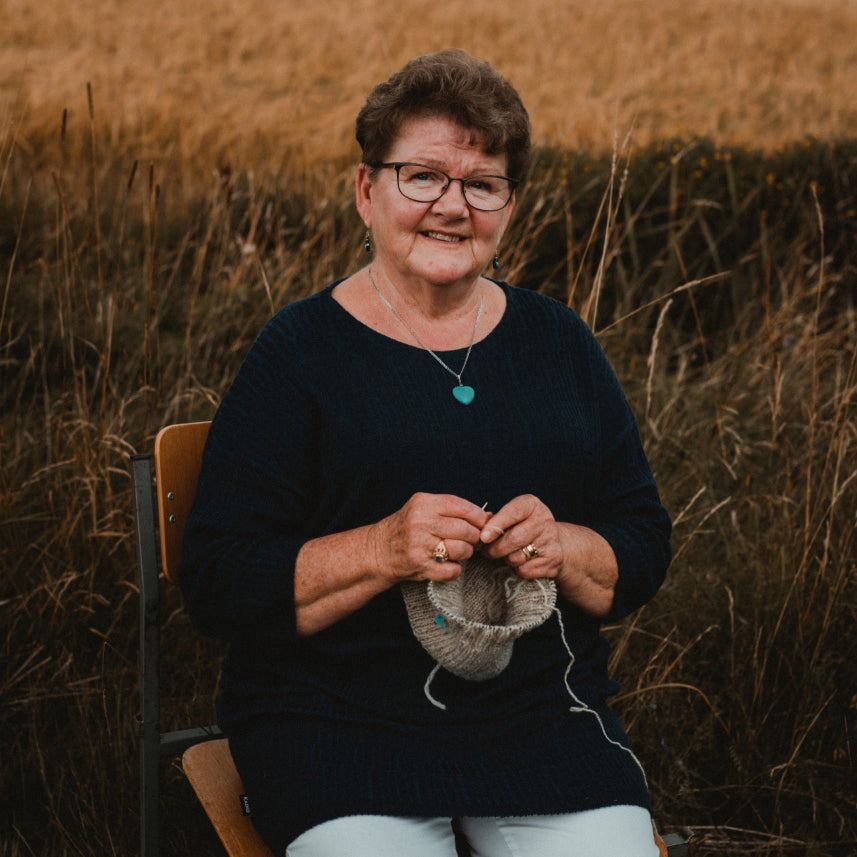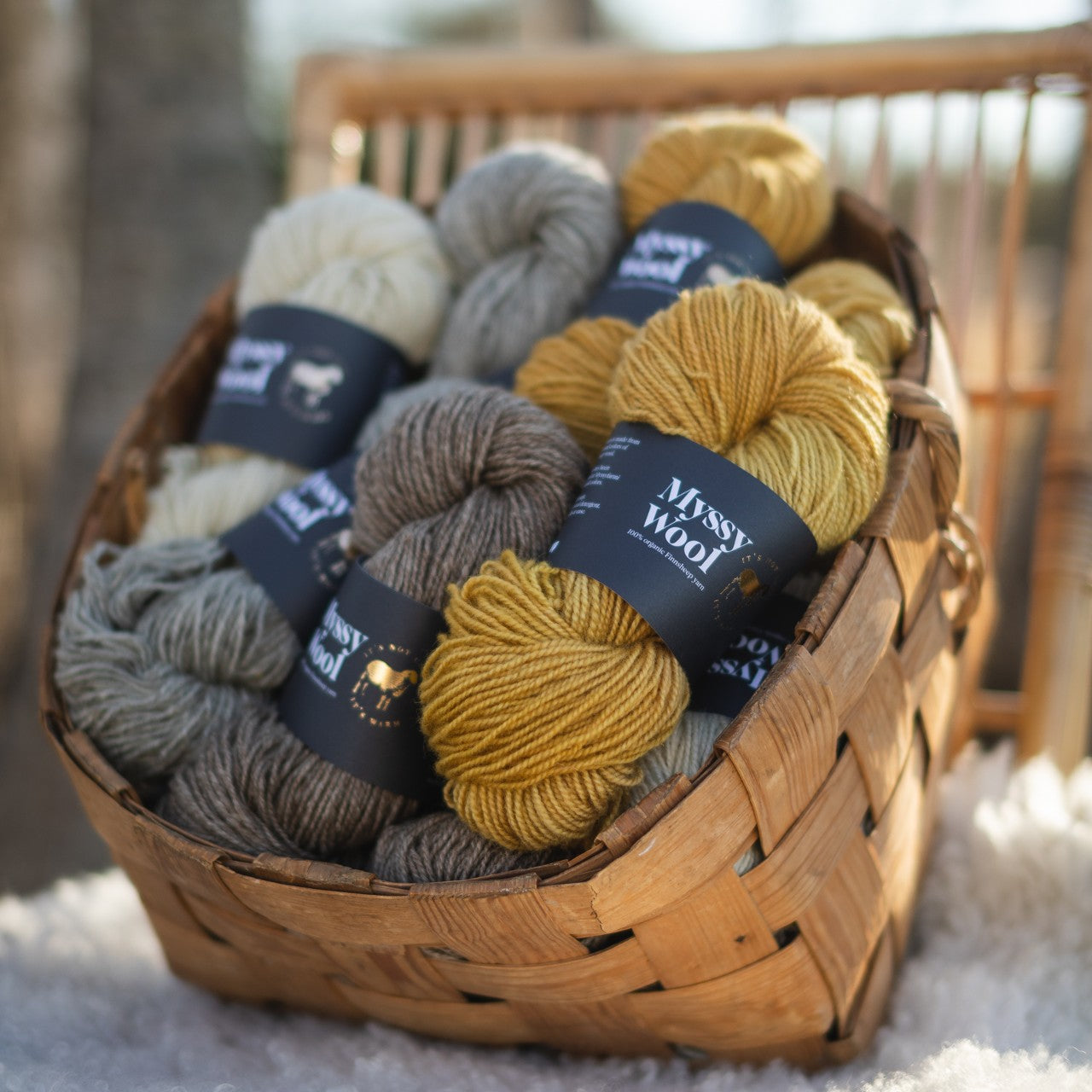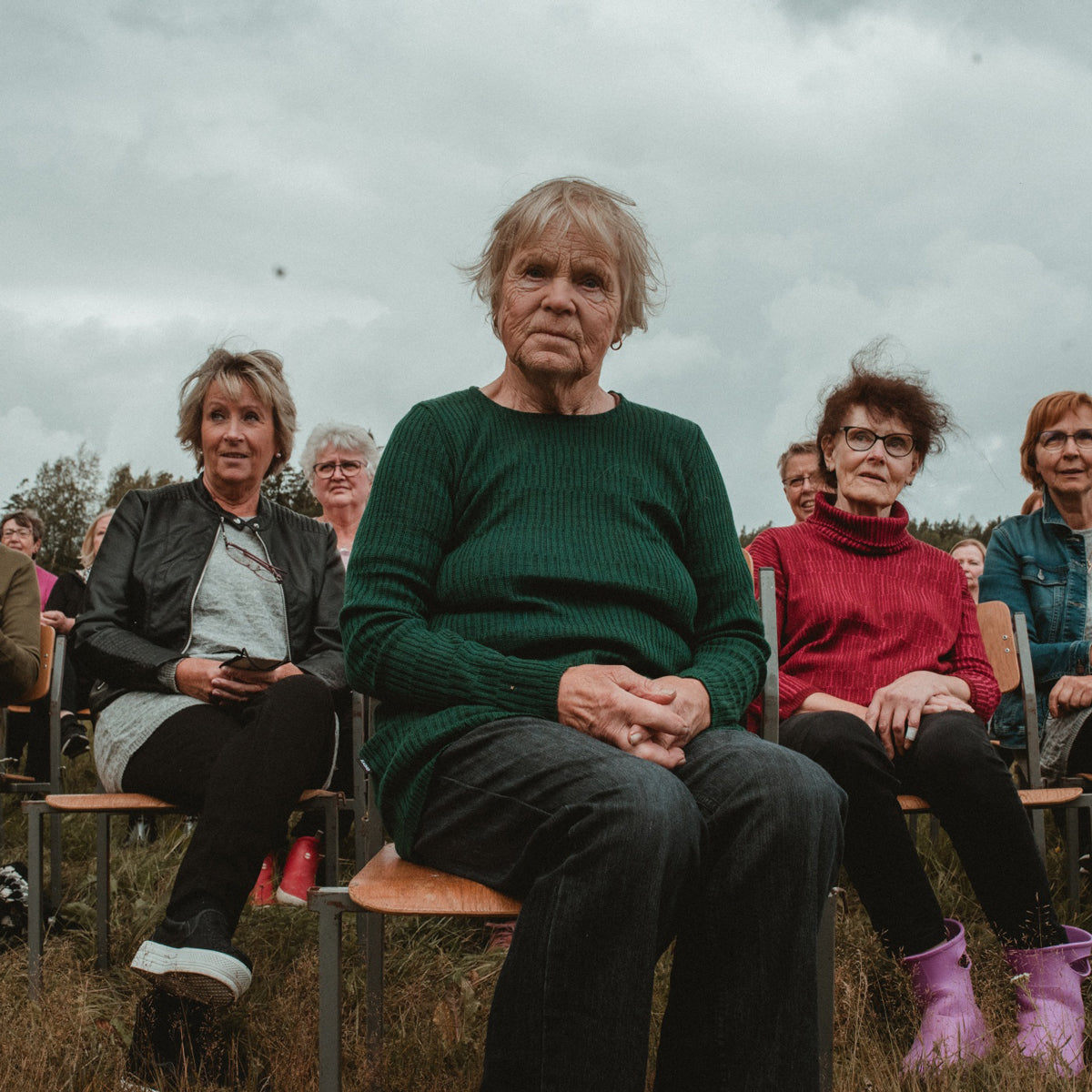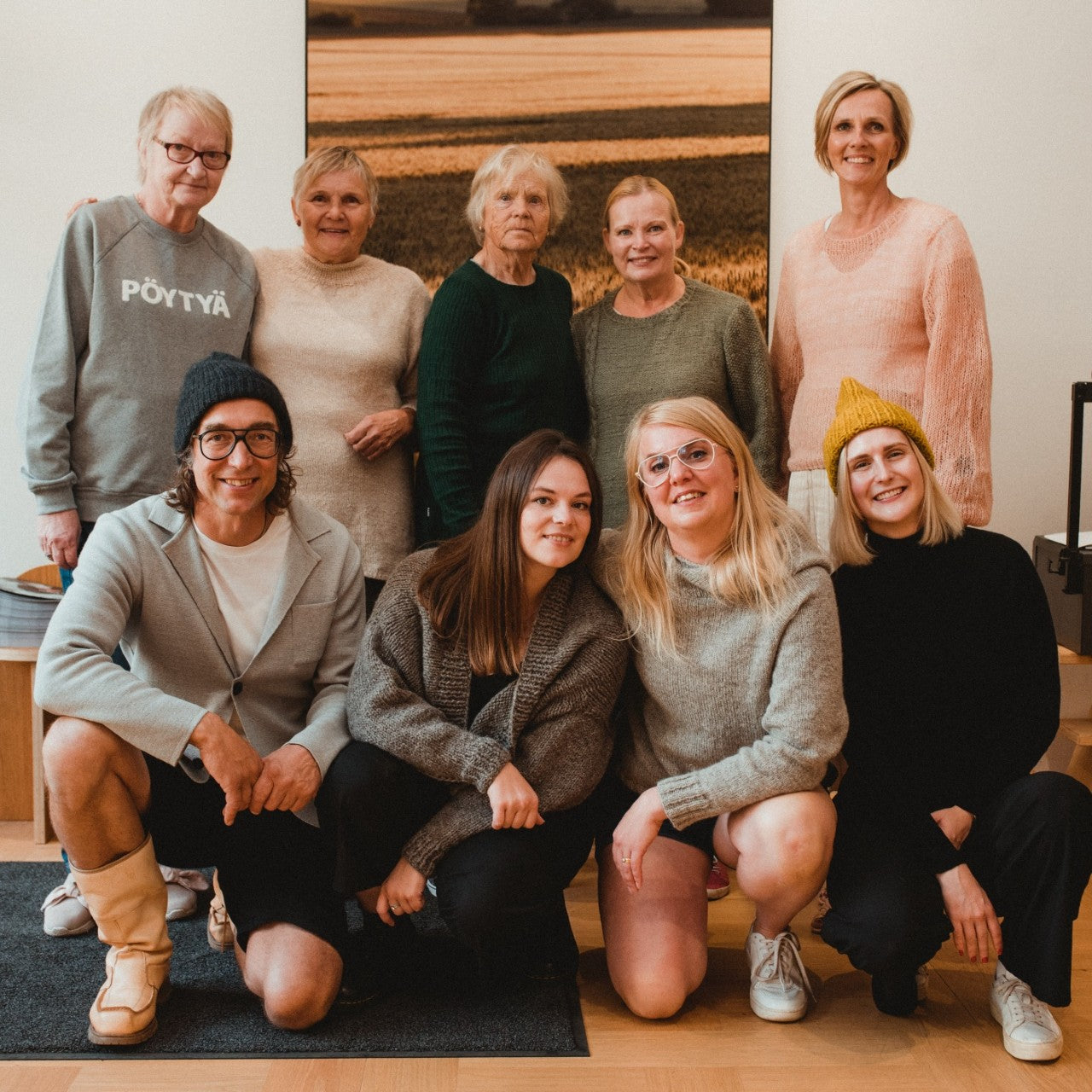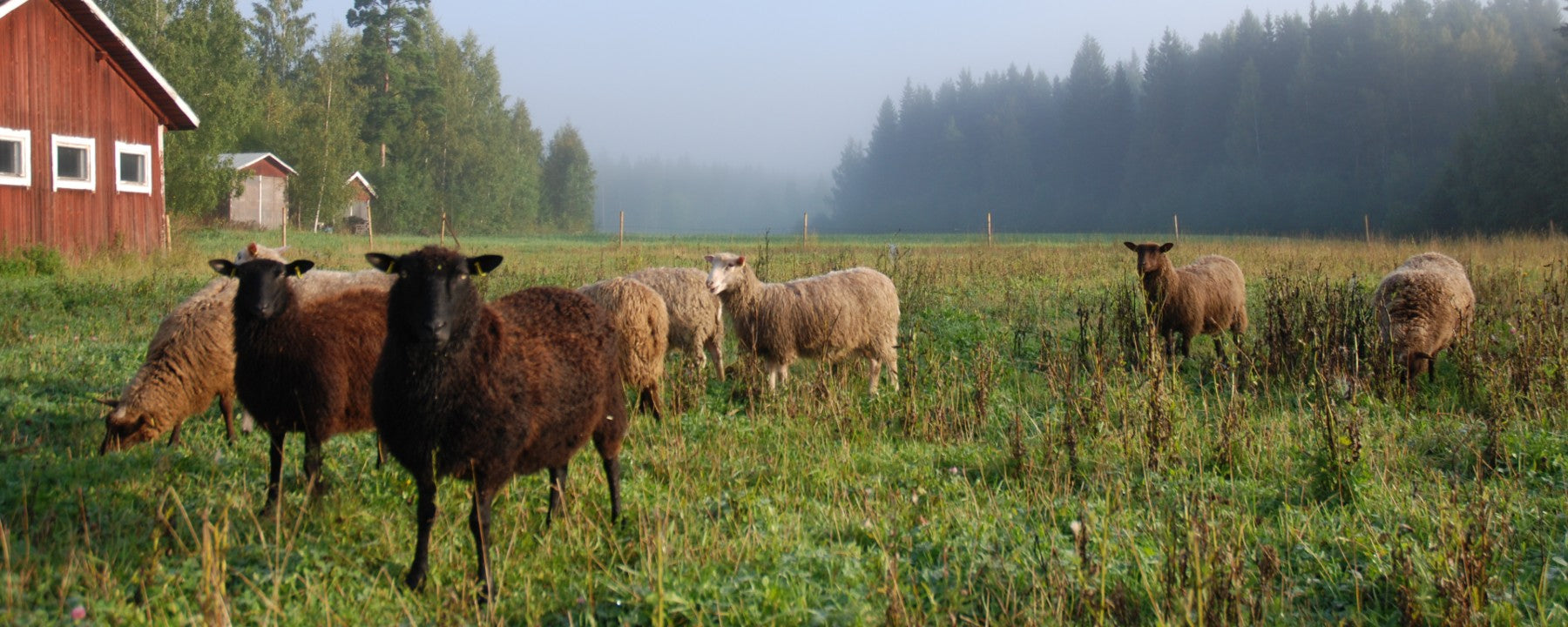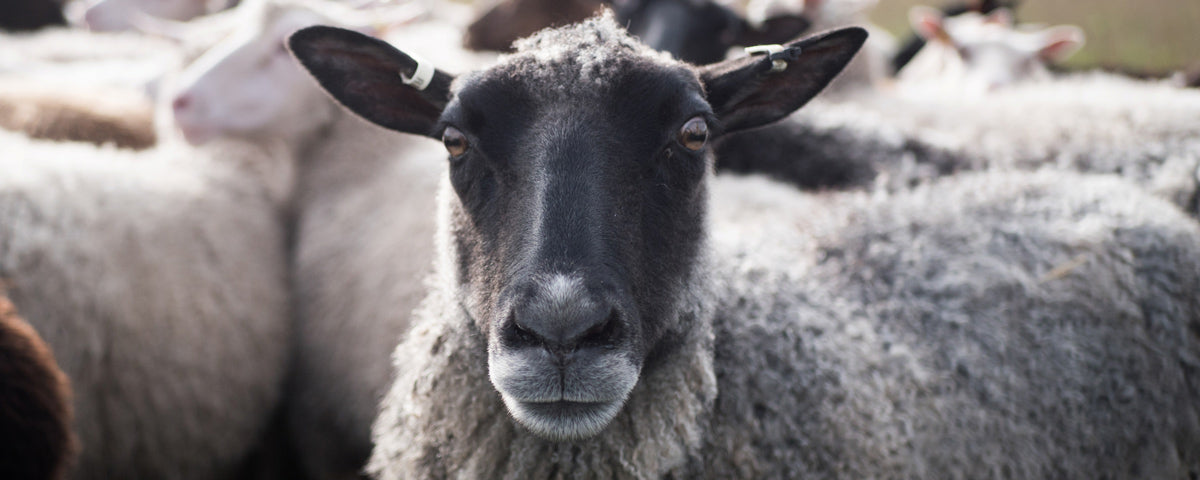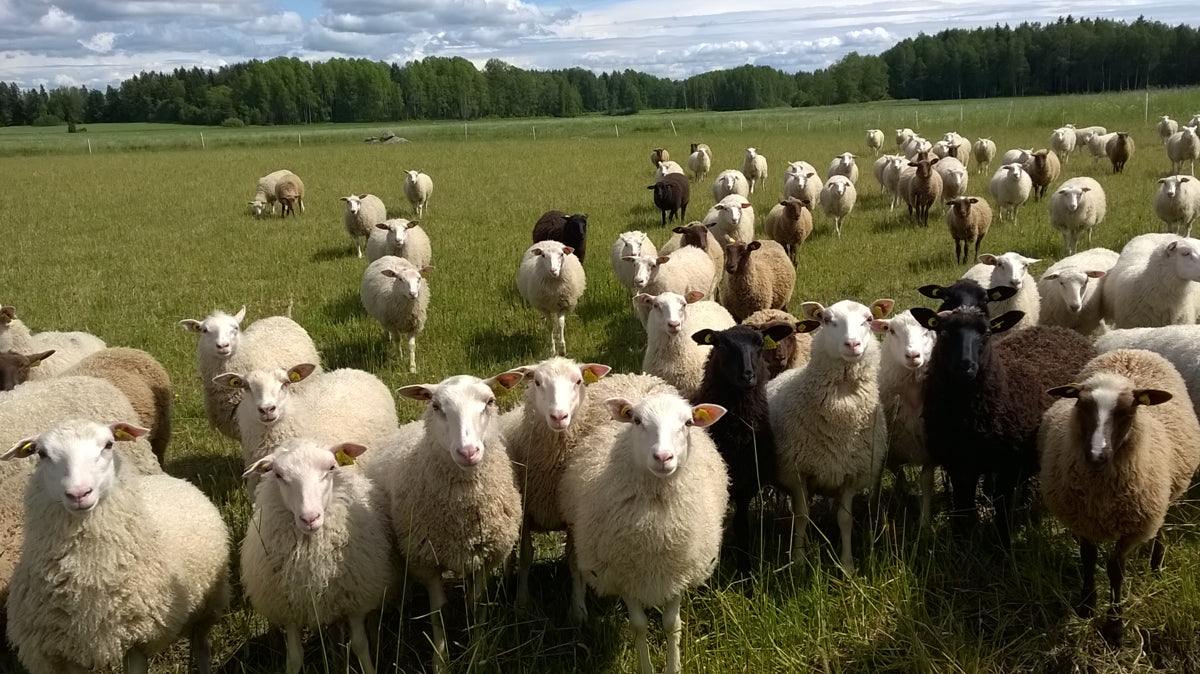Luxury Yarn from Finland
All of our garments are made from Finnsheep wool, produced in conjunction with our responsible partners. Similar in softness to Merino, the fiber's overlapping scales point inward making the yarn particularly soft, and in our opinion, there is no finer wool in the world!Our yarns are spun on our home turf in Finland in the few remaining spinning mills as well as hand-dyed here at our farm. The delicate process preserves the wool’s natural grease, lanolin, which makes our products naturally water and dirt resistant.
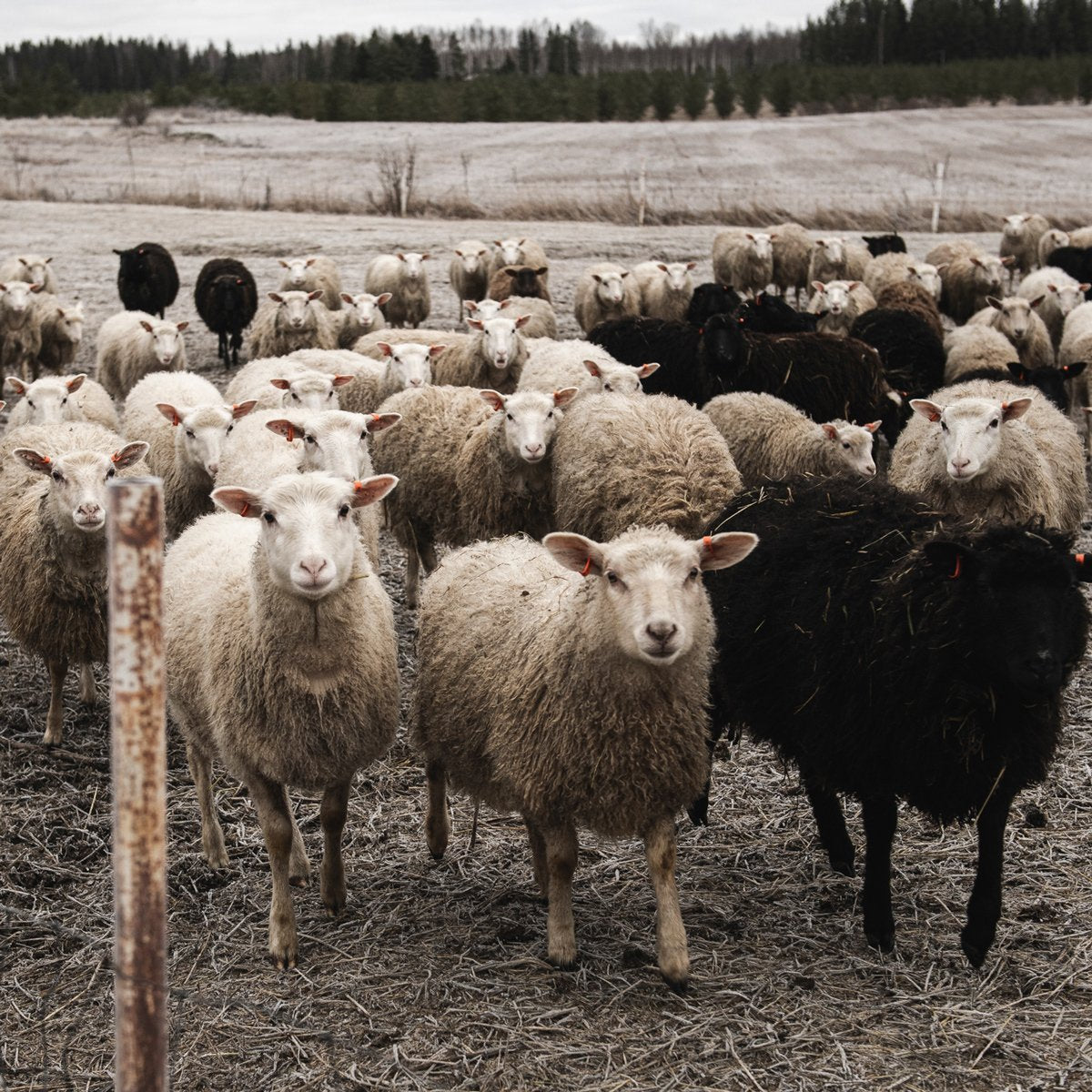
From waste to fashion
Despite being a high-quality material, more than 60% of Finnish wool is currently burned as waste due to the low market value of untapped business opportunities. We aim to change this by putting the wool into use and paying the sheep farms a fair price for their work. By doing this we are setting a new price standard and working to make the domestic wool market more lucrative. For us, this is a matter of reviving the Finnish wool industry and guaranteeing the traceability of our yarns. We are here to change the game.
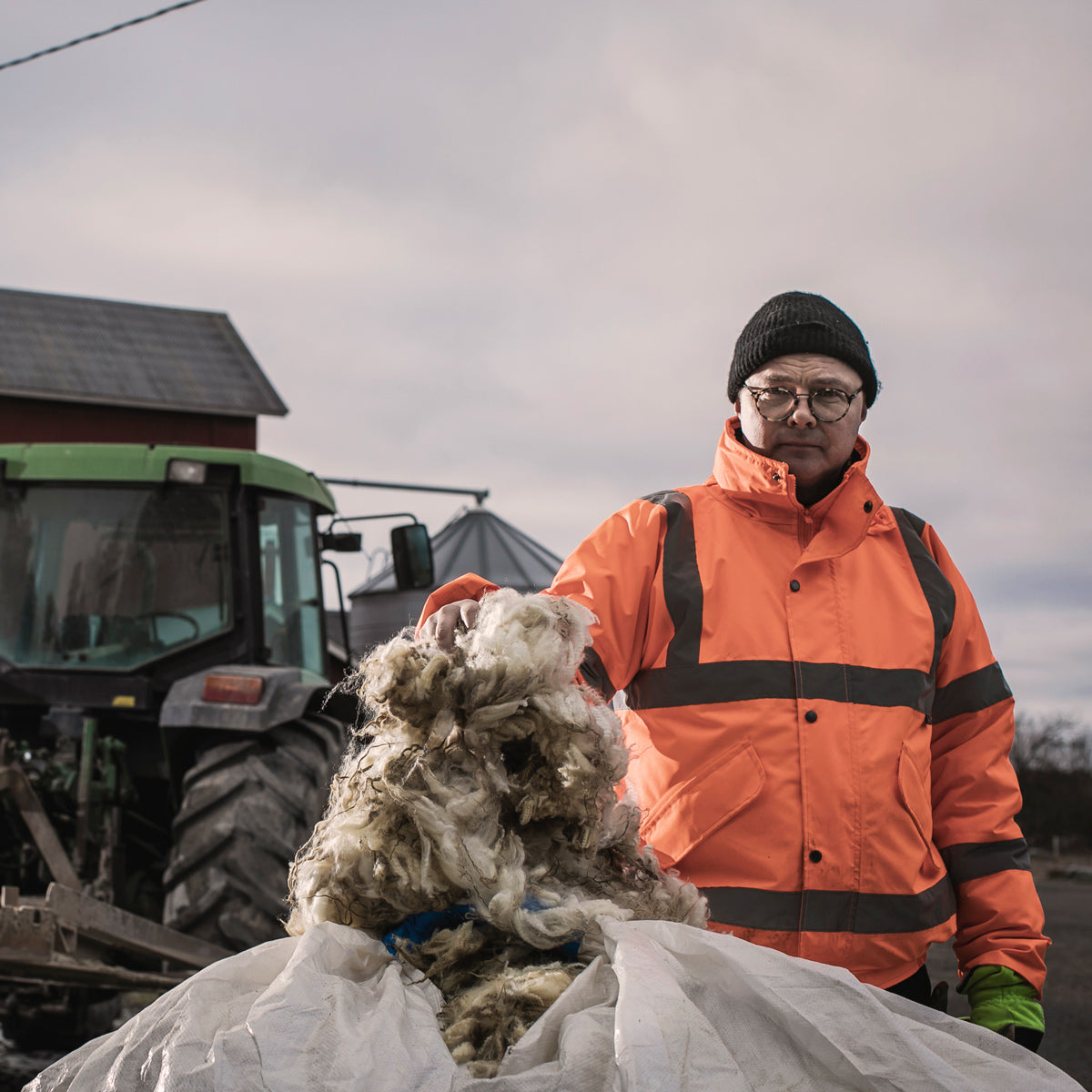
Reviving the wool industry
The wool is washed and spun in the few spins left in Finland. Our main partner is Pirtin Kehräämi. We want the spinning industry to survive in Finland and start thriving again. It is a prerequisite for the wider exploitation of this fine domestic raw material. We are the wooden economy "game changer."
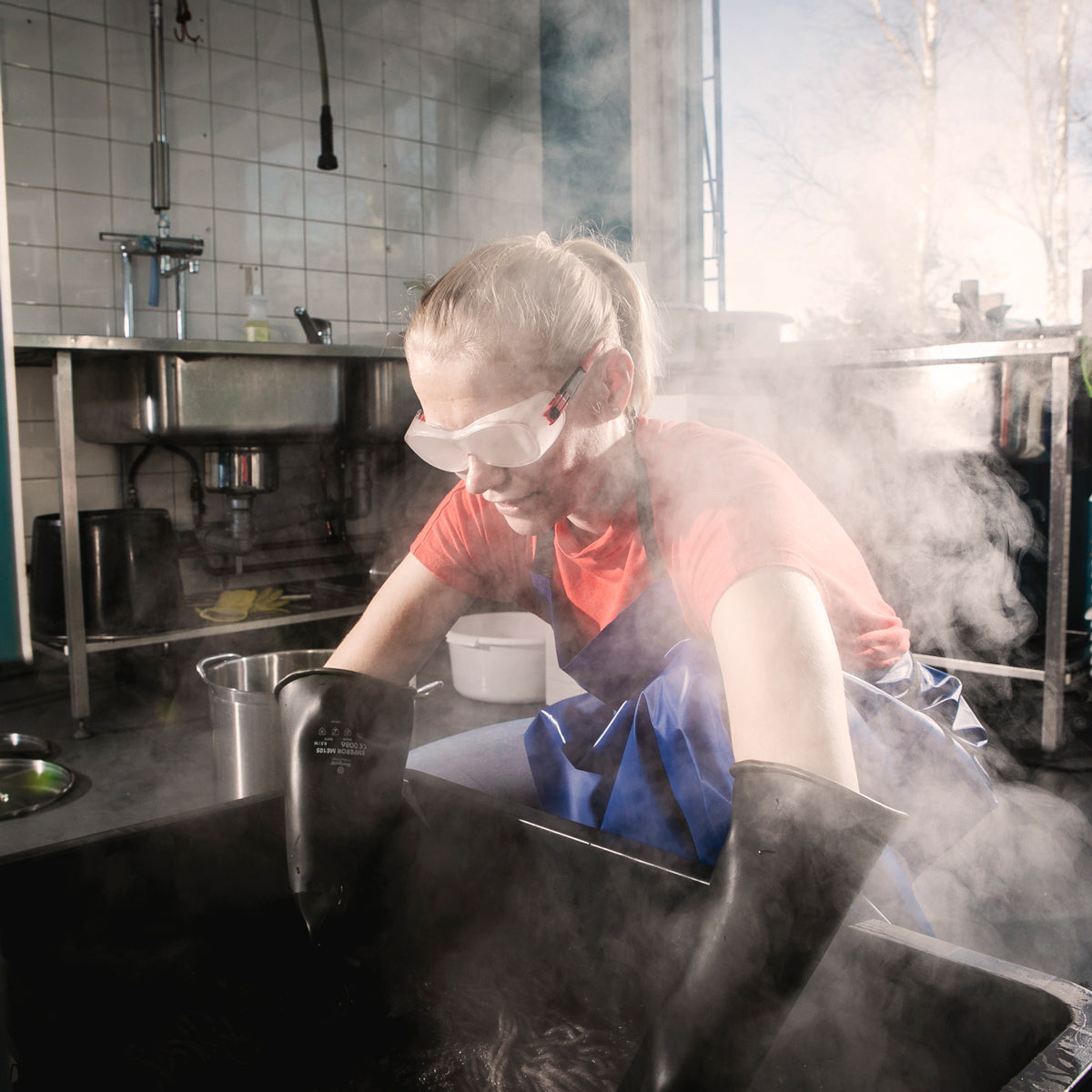
Hand-dyed shades
All of our yarns are hand-dyed here at Myssy Headquarters. It’s a slow and laborious process that results in particularly soft yarn and exceptionally vibrant colors. While the industrial dyeing process easily kills the natural liveliness of the yarn, our use of low-acid colors and citric acid keeps the colors bright. This thoughtful process plays a major role in the uniqueness of our products.
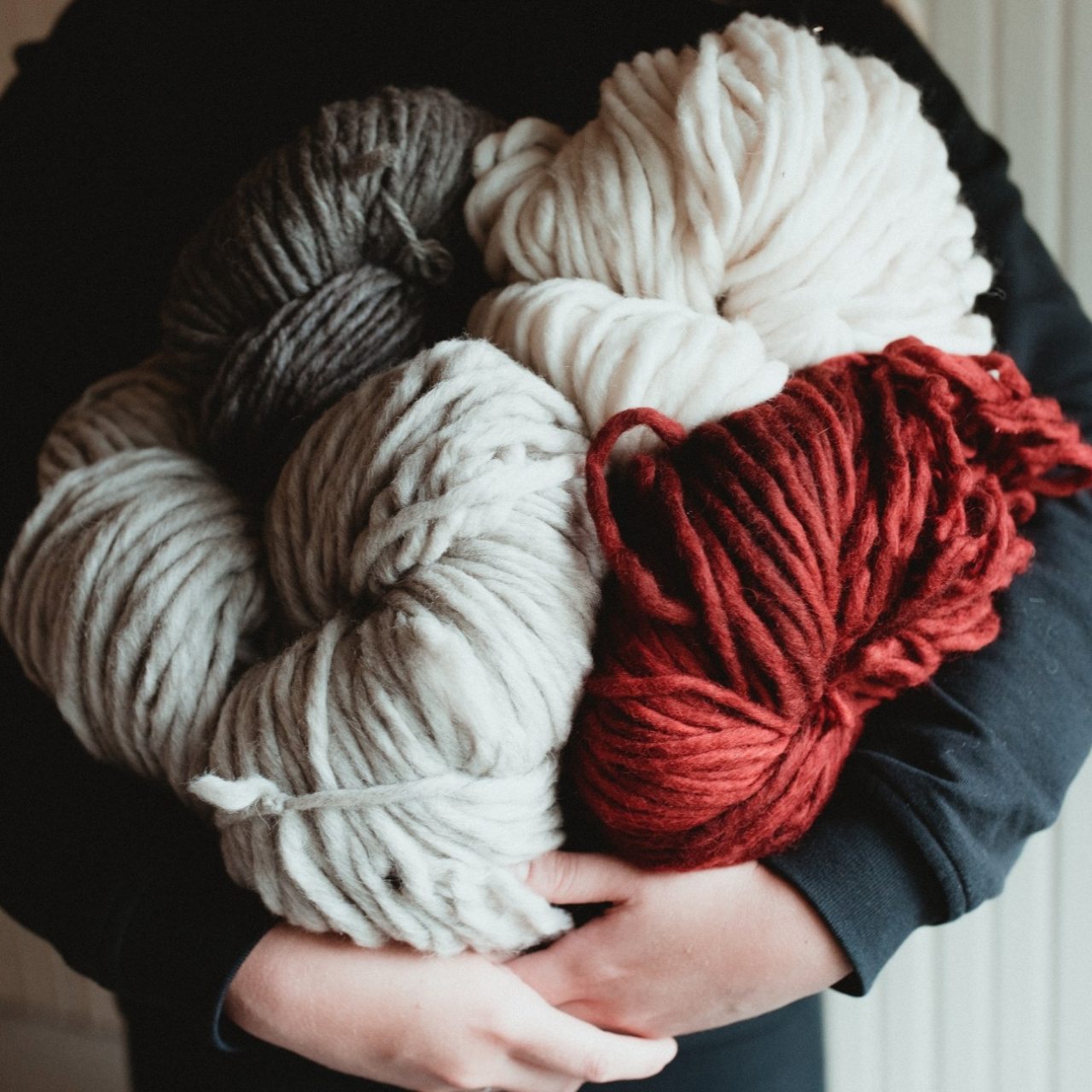
Natural Production and Traceability
In order to guarantee the organic status of our products, traceability and transparency of our wool production are important steps in the process. . Our wool is purchased directly from EU Certified Organic farms monitored by Finnish officials. These farms include our long-term partner Rintala farm from Pöytyä, Bovik farm, Jokela farm, Mikkola farm, Kero farm, Ranta-Niemelä farm, Örnberg farm, Vaahermäki farm, Rauhala farm and Tolvila Estate.
While our small-scale production volumes do not currently meet the need for international certification, all of our processes fill GOTS certification requirements and our spinning mill uses a maximum of 5% of conventional Finnsheep wool in the Myssyfarmi yarn production. No toxic processing inputs or other harmful chemicals are used in the production, storage, or handling of Myssyfarmi yarns.
Pirtti relies solely on ecological energy resources such as wind power electricity and geothermal heating for its processes. Wastewaters are properly treated by Mikkeli sewage treatment plant.
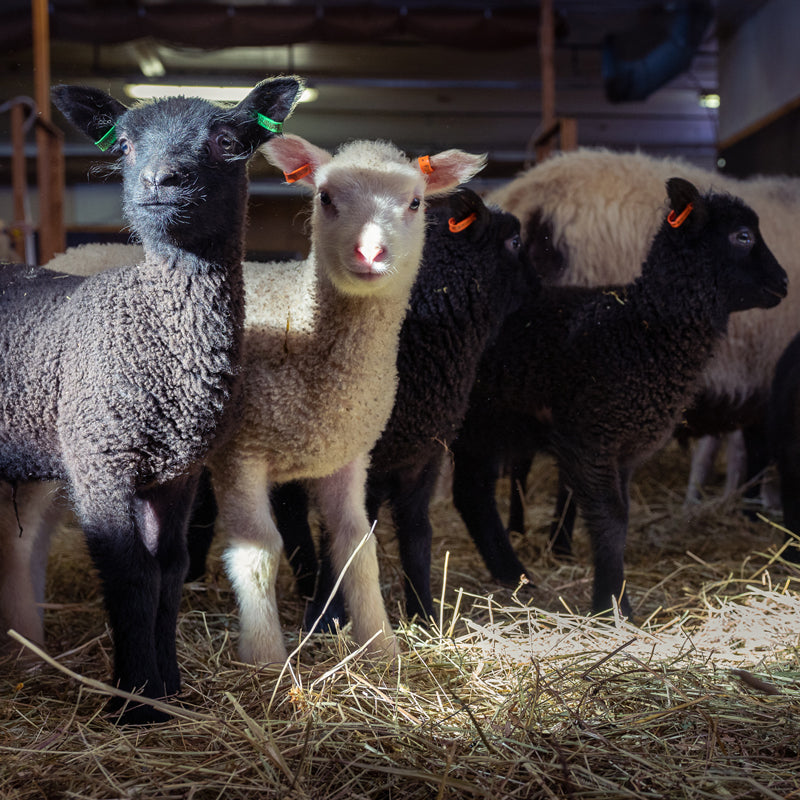
Wool Production Pilot
We are building a contractor pilot for wool producers to make sure this valuable material doesn't get wasted!
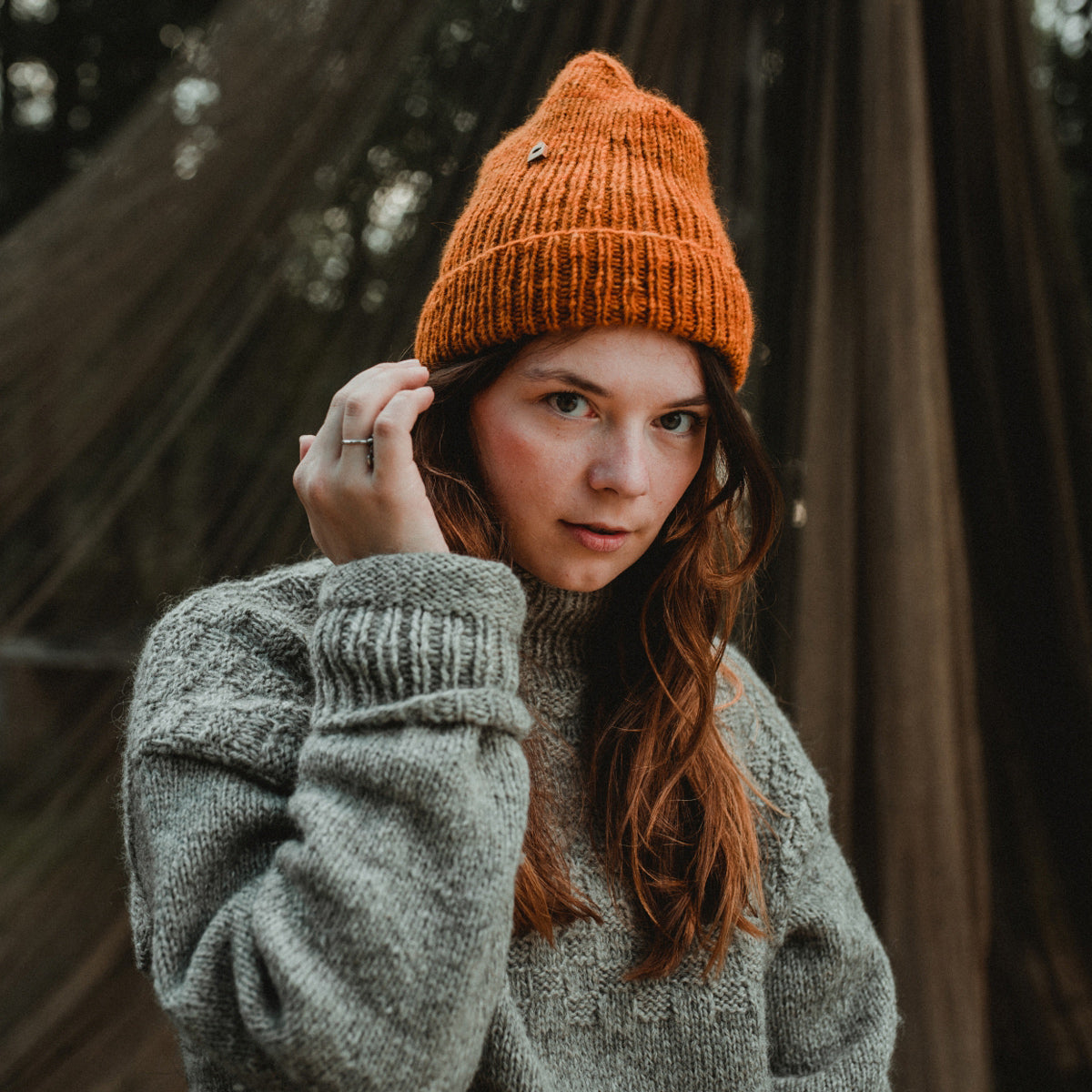
Maintaining the Natural Characteristics of Wool
Lanolin is the natural grease that keeps wool soft, skin friendly and naturally water and dirt resistant. It is often chemically separated and sold to the cosmetic industry in normal wool to yarn production We work to preserve these natural properties through the production process by handling and washing our wool very gently. Whereas raw wool contains about 20% of lanolin in its weight, our yarns contain it about 5%.
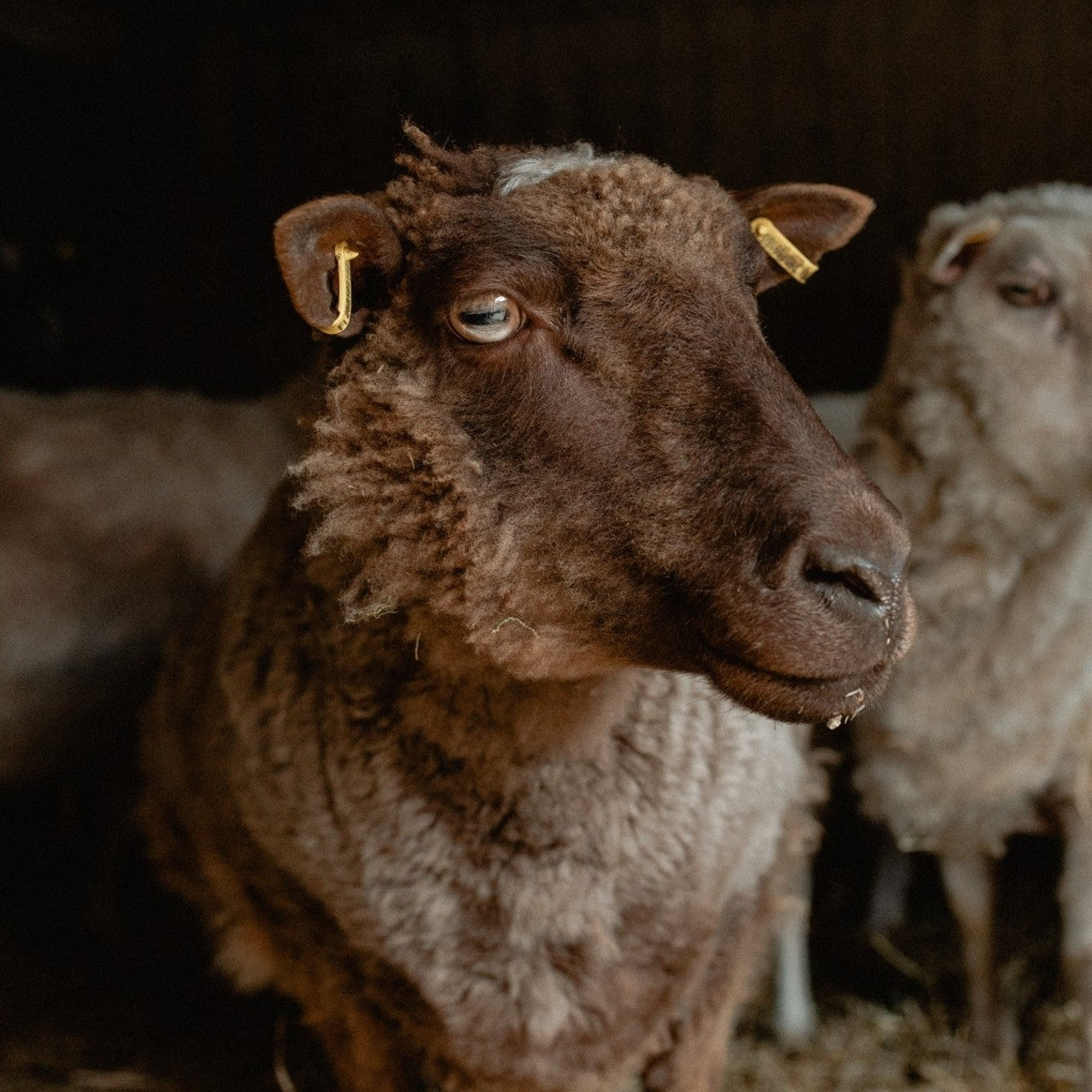
Wool is always a by-product in Europe
Wool is always a by-product in Europe. Sheep are production animals and the animal protection law requires sheep to be sheared once a year and animal welfare act twice a year. This means sheep are not kept for wool, but for other production purposes and even if they are just pets, wool is produced as a by-product anyway.
In Europe 200 million kilos of this by-product is wasted every year. There is no short answer to why this is happening. Wool is a raw material that has a world market price. Europe cannot compete in production costs and the global market price doesn't cover the expenses of separating the quality raw wool from trash and transportation cost to the washing facilities. Also the refining industry has moved to Asia little by little. The only way to get European wool back in use, is to pay a fair price for the raw wool that covers the cost for the farmer.
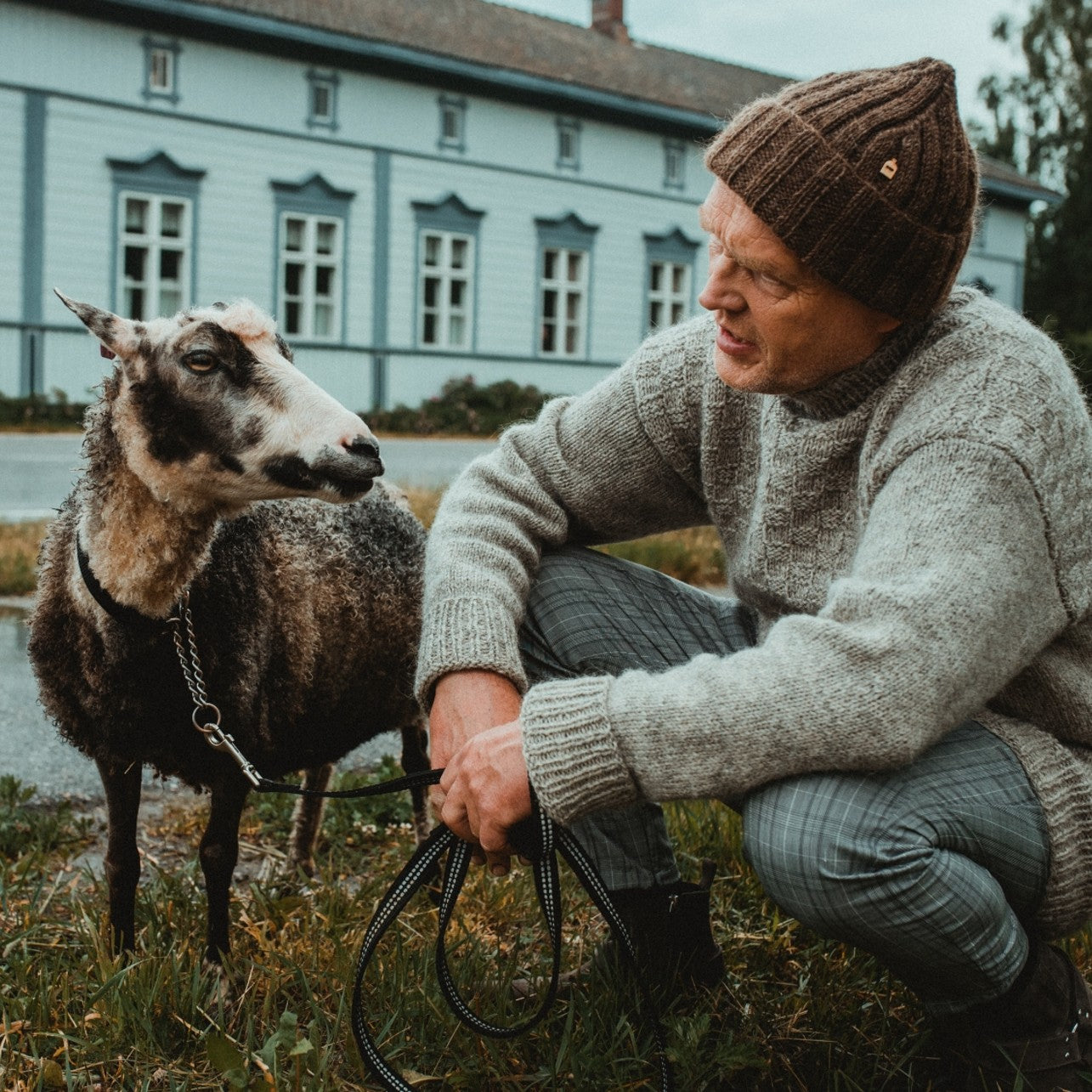
Facing the ethical questions
Wool is never vegan, not even when it is sheared from pet sheep. Ethically wool relates to the use of leather that is also a by-product. However we are ready to claim that out of all the wool in the world, Finnish wool is the most ethical wool on the market.
First of all we are using a by-product that would otherwise be wasted and solving the by-product use is ecologically a major issue to be solved. Finnish sheep farms are annually audited, animals are well cared for, no harsh chemicals are needed and unethical practices such as mulesing are not allowed in Europe. Sheep are eating the hay that is not suitable for human nutrition. Caring for the traditional biotypes is vital for the survival of many endangered species. The whole production chain is traceable and we know our contract farmers. Local spinning mills are using renewable energy in washing, heating and spinning, waste waters are properly taken care of. This is the most ethical wool on the market.
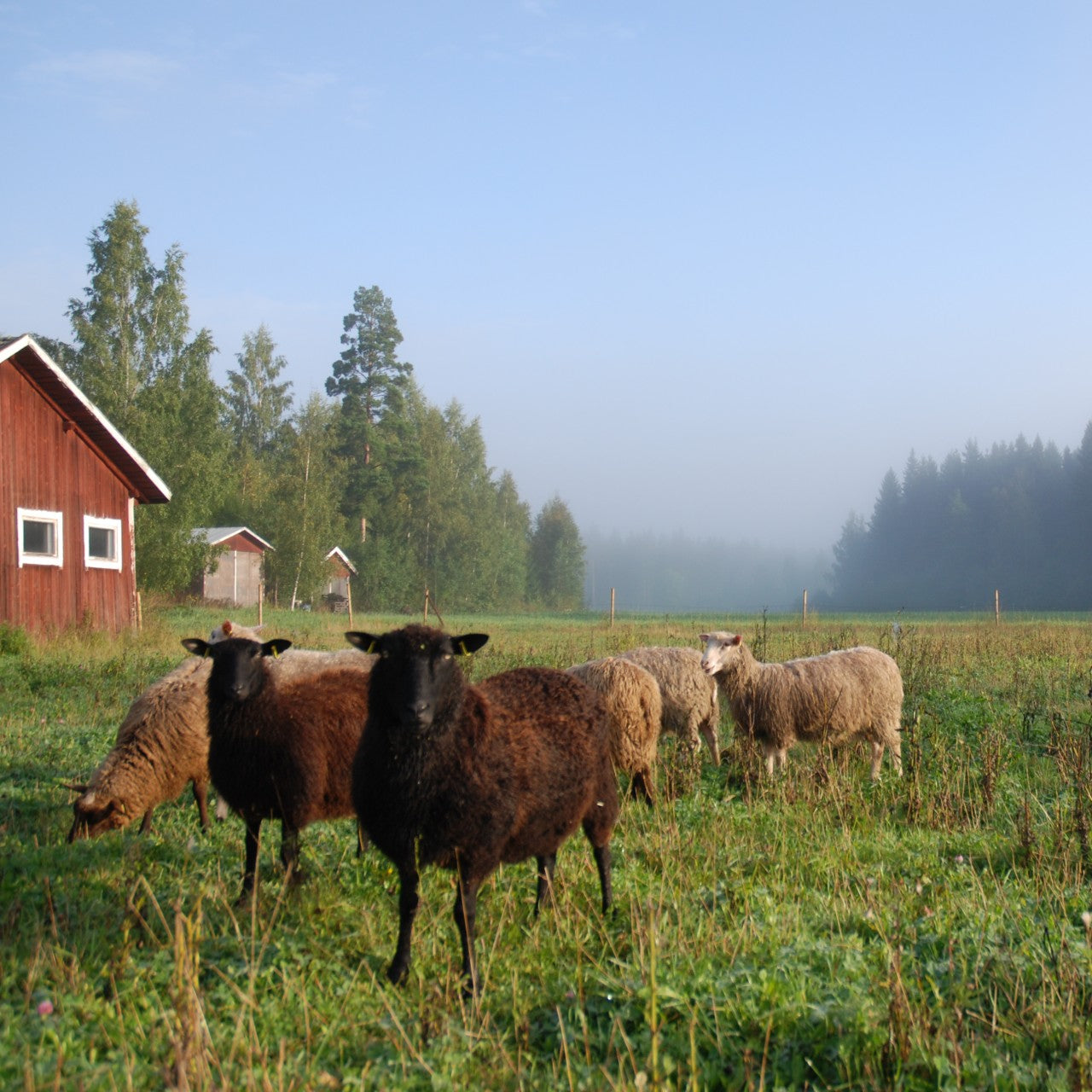
Maintaining traditional rural biotopes
In Finland sheep are production animals, but in many cases one of the main production plans of the farm is maintenance of rural biotopes. It is important to understand that a production animal that spends half of the year out in the pasture has an important role in natural circulation and improving biodiversity. Maintaining biotypes is supported with EU farming subsidies that form an important part of the revenue of many sheep farms.
Grazings have reduced dramatically in the past 50 years and many endangered species are depending on them. Sheep have an important role in reviving these biotopes and endangered species. Unlike farming many organic fibers, such as cotton or linen, producing wool is not destroying biodiversity but maintaining and improving it.
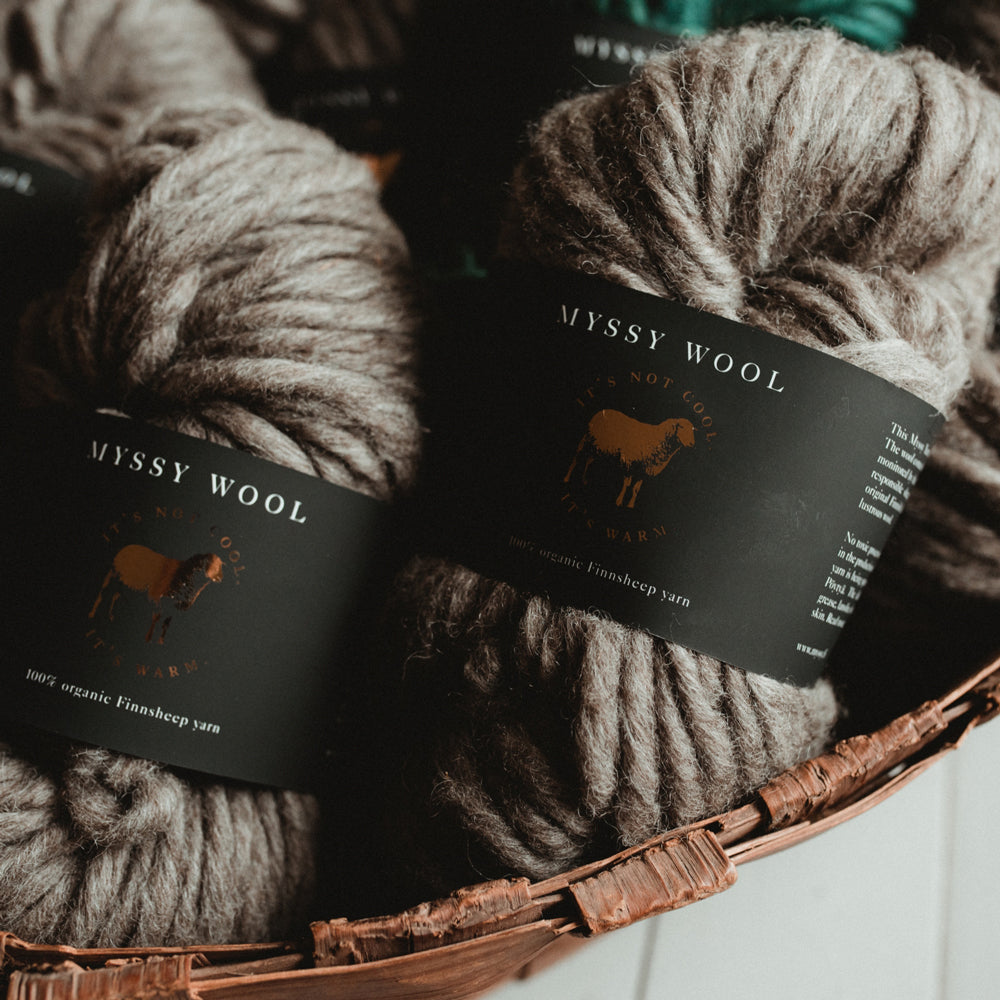
Go knit yourself!
The wool of Finnsheep has preserved a distinctive touch of the wildness.
The Unique Finnheep
Finnsheep is a Finnish landrace by its origin and Finland still has the most extensive genetic Finnsheep population in the world. We find it interesting that Finnsheep are closer to the original wild sheep than most sheep races of today!
Finnsheeps are known for their incredibly soft wool that is light in weight yet dense. These sheep have an exceptionally wide color spectrum: white, brown and black wool can be mixed, making seven great natural colors for our Myssys.
The sheep are sheared twice a year as is required by law and keeping with the well-being standards of the farms.
More about Finnsheep:
